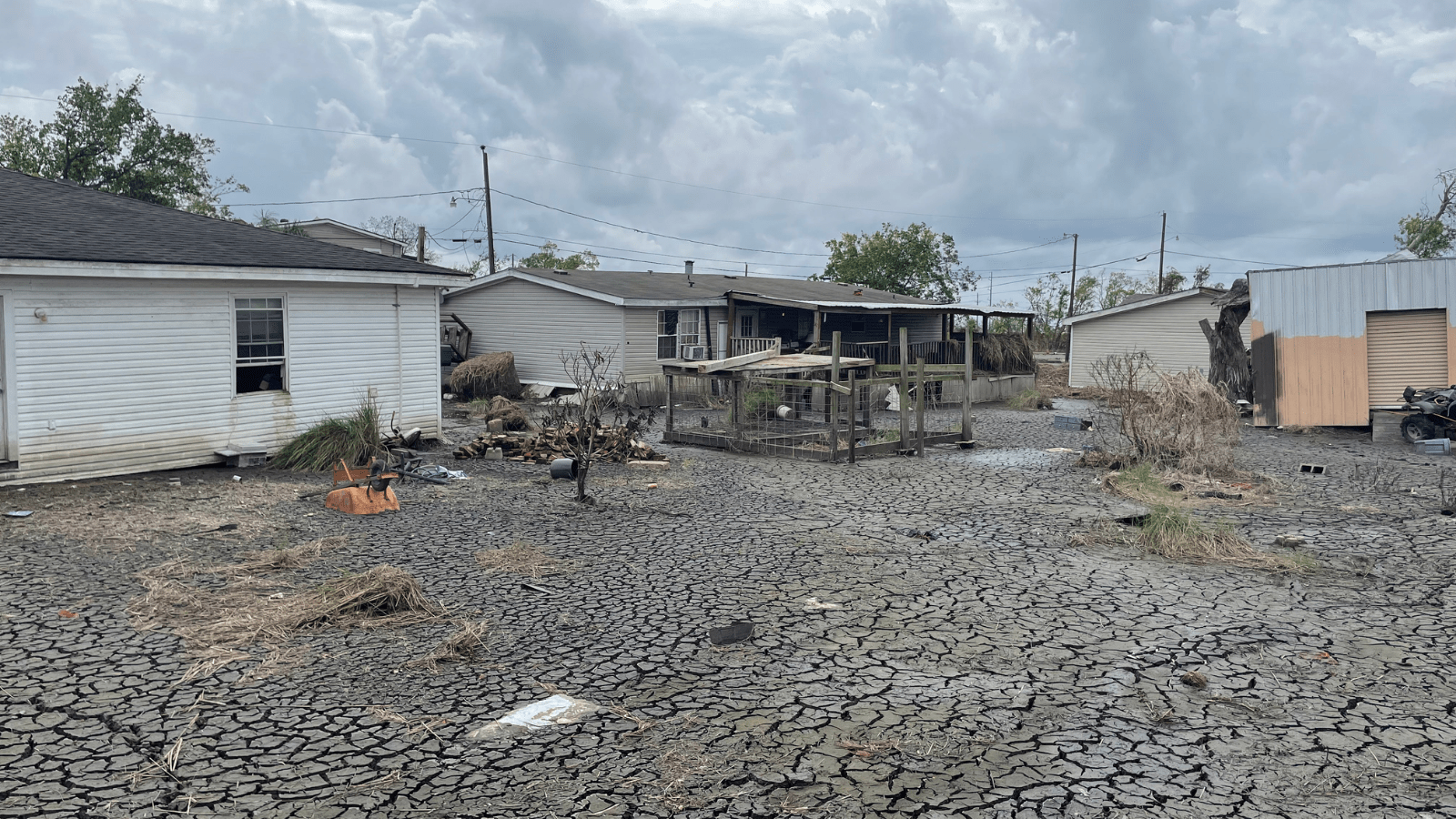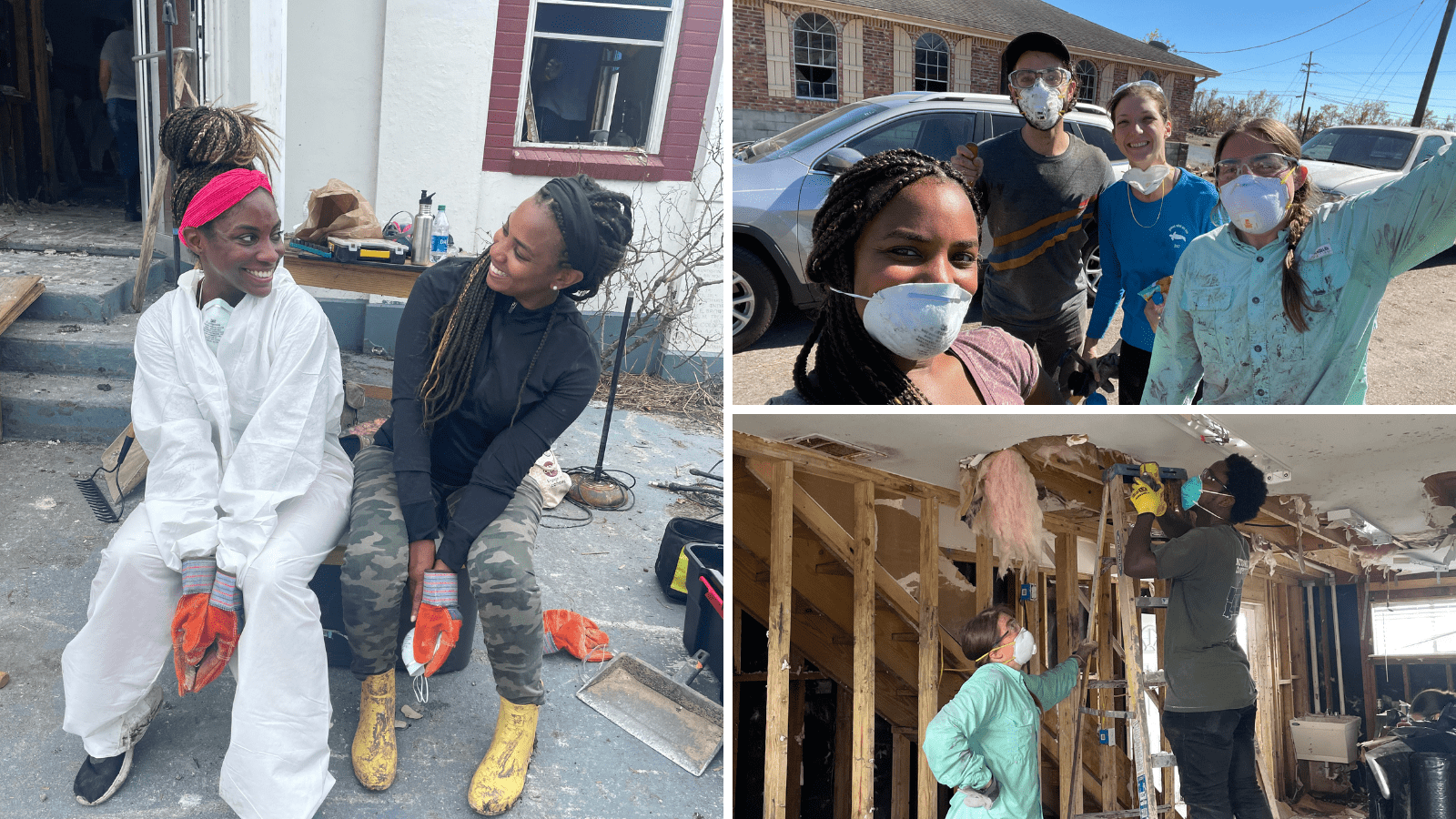We have much more to do and your continued support is needed now more than ever.
Recovery and Resilience on Louisiana’s Coast

On August 29, 2021, Hurricane Ida struck southeast Louisiana as a Category 4 storm with 150 mph winds. It ties Hurricane Laura (2020) and The Last Island Hurricane (1856) as the strongest hurricanes ever to make landfall in Louisiana.
The storm was a stark reminder of the ever-increasing vulnerability of coastal communities and the great importance of our Gulf team’s work to increase community resilience in the face of climate change. While many of the NWF staff in Louisiana and our partners were evacuated from our homes in the weeks following the storm, we were all clear that our response had to center on the communities in greatest need of support – often the overlooked communities already harmed by fossil fuel production, land loss, and sea level rise.
So while national audiences saw New Orleans featured prominently in the news, the storm had most impacted smaller, more rural communities. Working with our community-based contacts, NWF’s Gulf team gutted houses, tarped roofs, and used our online platforms to elevate the mutual aid networks, community-based organizations, and direct service funds that were addressing the immediate needs of people impacted by the storm, especially in Indigenous and predominantly Black communities who are often overlooked during disaster relief efforts. As our region experiences more and more climate disasters, it is critical that we work to address the ways disaster recovery can, and often does, perpetuate existing inequities in our society, leaving communities who have experienced the most harm with even fewer resources.

The National Wildlife Federation is primarily working to address these inequities in the work we do to help vulnerable communities prepare for climate threats like sea level rise and strong storms. Our Gulf team continues to build on our decades of work to make the Louisiana coast more resilient through large-scale coastal restoration. We are continually striving to address inequity through long-standing community partnerships, centering social vulnerability into our technical and policy work, and weaving equity principles throughout all of the strategies driving our coastal restoration efforts. With billions of dollars being spent in the next several years to advance ecosystem restoration in Louisiana, it is imperative that we ensure this massive undertaking is serving everyone, especially the most vulnerable and historically marginalized people.
We know recovering from Ida will take many years and while those efforts are ongoing, NWF will be working hard to ensure critical restoration projects will be implemented that will increase the resilience of the region. Hurricane Ida made clear that these efforts are more important and urgent than ever. The good news is that Louisiana is making unprecedented progress in its coastal resilience efforts. This year, our team will be heavily engaged in seeing major restoration projects meet milestones that have been decades in the making. Our success moving forward will be because of the strong, continued advocacy of our NWF members and supporters.





















